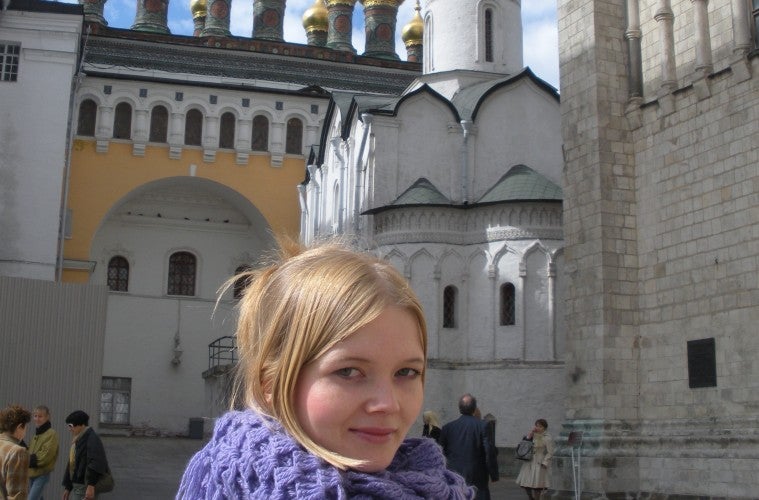Wytske van der Wagen came across a Criminology curriculum by accident, and she hasn’t looked back. ‘I rode along on marijuana grow-op dismantling operations, and at the Dutch embassy in Moscow I studied Russian organised crime syndicates.’
What do you do now? “I have an 80% appointment as a Doctoral Candidate at the University of Groningen, doing a dissertation on cybercrime. For the other 20%, I give lectures and supervise Criminology students writing their theses.”
And is that fun? “Who didn’t enjoy writing their thesis?!? If not, you should never start on a PhD. I really enjoy spending four years working on my own research! I get the opportunity to really dig deep into the subject, and I get to read and learn lots of interesting things.”
‘After a marijuana cultivation dismantling operation, my clothes smelled so badly of marijuana that I drew the attention of the train conductor’
Did you find it easy to apply for a job? “I started applying for jobs right after graduation. But it wasn’t easy; there weren’t many jobs available, so I was forced to work at a callcenter. And even that was tough to get. If you have a university education, then they think that you’ll get bored and leave. After around six months, I suddenly found two openings: a research position with the police and a PhD. position. I decided to do a PhD., because a chance like that only comes around once!”
What is your average work day like? “Sometimes I give lots of lectures to Criminology students, while at other times I spend more time on research. In general, I read some literature, work on my dissertation and prepare my lectures. When I collect research data, I have to leave the office to analyse police files.”
What Master’s study programme did you do? “I chose the Master in Social Organisations and Criminality. I’m mainly interested in the social aspects of crime, but also issues such as organised crime and organisational crime.”
Was that a good choice? “Absolutely! I had plenty of freedom to choose my own courses. And organising my own research into highly educated sex workers was really fun. My thesis was about the integrated approach to illegal marijuana cultivation. At the North Brabant Police Corps’ National Marijuana Cultivation Enforcement Programme, I study how public-private partnerships can be put into practice. I took interviews and rode along with cultivation dismantling operations. One time, my clothes smelled so badly of marijuana that I drew the attention of the conductor in the train back to Amsterdam. The results of the study were presented at the Cultural Criminology Conference in 2009, and at a conference of the Netherlands Association for Criminology (NVC).”
‘Studying is more than just earning your credits’
You ended up doing well for yourself. What advice do you have for others? “During your studies, attend conferences like the NVC conference. Or go to the CIROC seminar, summer schools and participate in student conferences like the one organised by UNISCA. Studying is more than just earning your credits. So expand your horizons a bit. You can also enrol in a minor at another faculty or university, like Economics, Psychology or a foreign language. Without my minor in Russian, I would never have been able to get the work placement in Moscow.”
Work placement in Moscow? “I did a work placement at the Dutch embassy in Moscow, studying the nature of organised crime in Russia and Russian organised crime in the EU and the Netherlands. They were looking for a Criminology student with an affinity for Russia and the Russian language. So I spent three months in Moscow in 2010.”
That must have been quite an experience? “Yes. You learn how things are done there and get to know lots of interesting people, as well as learning about the country itself. Every day they discuss the day’s news in the Russian newspapers. At the embassy, I conducted literature research and interviewed experts, such as liaison officers from other embassies, journalists and a forensic accountant, but also people from Interpol, FBI and UNDODC. I was also able to visit the trial of Chodorkovsky. I sat in a room with the prosecutor and attorneys, and Chodorkovsky and Lebedev sat in a glass cage with heavily armed guards. It was rough, because of an extreme heat wave and forest fires nearby, which meant that you couldn’t spend much time outside and it was difficult to breathe.”
CV BLOK






